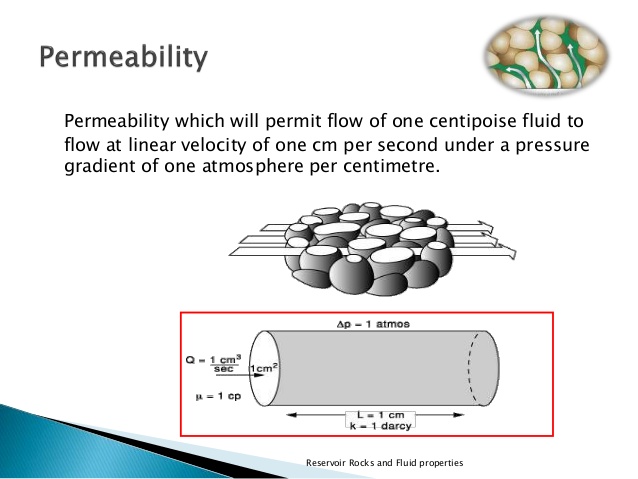
permeability [pur-mee-uh-bil-i-tee] ExamplesWord Origin noun
- the property or state of being permeable.
- Also called magnetic permeability. Electricity. a measure of the change in magnetic induction produced when a magnetic material replaces air, expressed as a coefficient or a set of coefficients that multiply the components of magnetic intensity to give the components of magnetic induction.
- Geology. the capability of a porous rock or sediment to permit the flow of fluids through its pore spaces.
- Aeronautics. the rate at which gas is lost through the envelope of an aerostat, usually expressed as the number of liters thus diffused in one day through a square meter.
- Nautical. the capacity of a space in a vessel to absorb water, measured with reference to its temporary or permanent contents and expressed as a percentage of the total volume of the space.
Origin of permeability 1750–60; permea(ble) + -bility Related formsnon·per·me·a·bil·i·ty, noun Examples from the Web for permeability Contemporary Examples of permeability
“From what we understand, [with NSAIDs] one of the side effects is that they can affect the permeability of the gut,” says Fasano.
Research Shows Link Between NSAID Use and Gut Disease
Valerie Vande Panne
April 21, 2014
Historical Examples of permeability
The iron by its permeability also concentrates and increases the magnetic flux.
Willis Eugene Tower
When delayed, renal “permeability” is supposed to be interfered with.
A Manual of Clinical Diagnosis
James Campbell Todd
Hence it is argued that their capillaries show the least permeability.
Encyclopaedia Britannica, 11th Edition, Volume 17, Slice 2
Various
Permeability is a measure of the ease with which magnetism passes through any substance.
Hawkins Electrical Guide, Number One
Nehemiah Hawkins
On the permeability of transparent screens of extreme tenuity of radiant heat.
Quarterly Journal of Science, Literature and the Arts, July-December, 1827
Various
British Dictionary definitions for permeability permeability noun
- the state or quality of being permeable
- a measure of the response of a medium to a magnetic field, expressed as the ratio of the magnetic flux density in the medium to the field strength; measured in henries per metreSymbol: μ See also relative permeability, magnetic constant
- civil engineering the rate of diffusion of a fluid under pressure through soil
- the rate at which gas diffuses through the surface of a balloon or airship, usually expressed in litres per square metre per day
Word Origin and History for permeability n.
1733, from permeable + -ity, or else from French perméabilité.
permeability in Medicine permeability [pûr′mē-ə-bĭl′ĭ-tē] n.
- The property or condition of being permeable.
- The rate of flow of a liquid or gas through a porous material.
permeability in Science permeability [pûr′mē-ə-bĭl′ĭ-tē]
- The ability of a substance to allow another substance to pass through it, especially the ability of a porous rock, sediment, or soil to transmit fluid through pores and cracks. Geologic permeability is usually measured in millidarcies. See more at darcy.
- Magnetic permeability.
 Liberal Dictionary English Dictionary
Liberal Dictionary English Dictionary